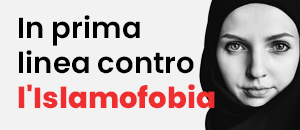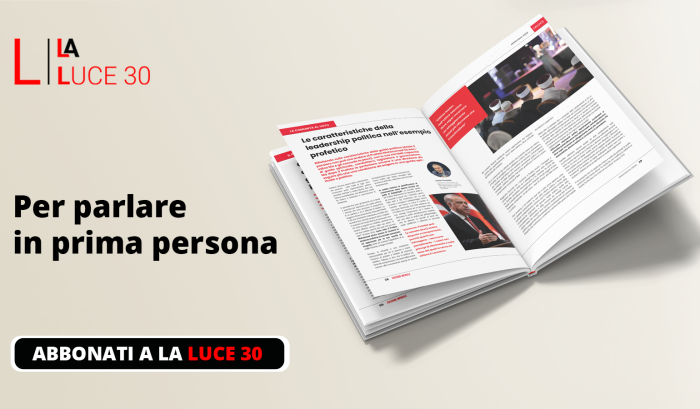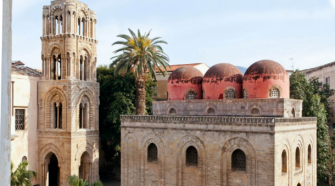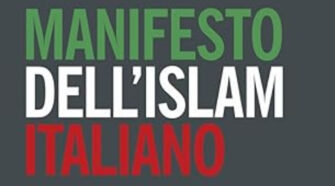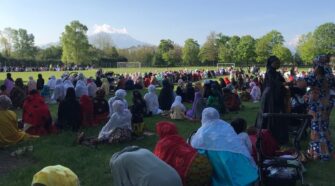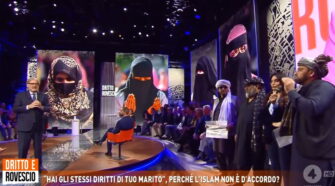The relation between Islam and ecology is deeper than the average person can guess. Nowadays this issue is still poorly discussed. Since several years the climate change and ecological crisis are a matter of concern but only recently they have been seriously included in the agenda of the main nations’ governments in the world.
Indeed, till few years ago, the environmental issues were discussed mostly within the civil society.
It was common to include ecologism among the so called post materialist values (using here one category of the sociologist Ronald Inglehart), peculiar to American and European capitalism.
The post materialist values, in fact, arise where the basic needs have been widely satisfied and, then, the new generations of opulent societies claim something more: a better quality of life, more inclusiveness in decision-making processes, gender equality, respect for the minorities and, last but not least, more care for the environment.
All this in the context of widely secularized collectivities, almost inevitably destined to become “orphans of the sacred” and, then, looking desperately for noble values “to fill the unbridgeable void”.
The case of the Islamic world (of those countries where the majority of the population is Muslim and of Islamic minorities in non Muslim countries) is different.
In fact, despite weak processes of secularization in recent years, Islamic culture is still strongly rooted in the centrality of God. Probably it is also because of this — or of the great social resource represented by a widely shared faith — and because of its several “material” problems, Islamic world is seriously approaching the ecological issues with delay compared to the “profane Western world”.
However, we have shown in other articles how Islam is a “genetically environmental” religion.
The Iranian philosopher Seyyed Hossein Nasr — pupil of the famous traditionalist Frithjof Schuon and one of the pioneers of the eco-theology — explains better than I can do how environmentalism is an intrinsic element of Islam.
In his pivoltal text Man and Nature, Seyyed Hossein Nasr connects the current, dramatic environmental crisis to the spiritual crisis of modern man, to the oblivion of God and the sacredness of nature as a direct expression of His creation, entrusted to the custody of the human beings, as it is clearly stated in the Holy Quran: “He who has made you successors (Khalifa) upon the earth” (Sura 6, vs 165).
Therefore, at the source of contemporary, dramatic, environmental crisis there would be, in Nasr perspective, exactly the secularization, the main responsible for what René Guénon (among the first European reverts to Islam) defined — to quote the title of one of his books — “the crisis of the modern world”.
In this way Nasr overturns the hypothesis of Inglehart who identifies in the secularization the “breeding ground” of post-materialist values, produced in response to aridity and ferocity (against the environment as well as the human beings) of a purely materialist culture and peculiar, as mentioned before, of a prosperous and secular society (whose prosperity, however, is the result of exploitation of other people, as it is crystal clear looking at the history of colonialism; one of the main sources of several “material” problems affecting the Islamic world today).
Among the post materialist values we can even include a sort of “renaissance of the sacred”, often in a completely sweetened form (from a traditionalist point of view); the New Age — with its hugs, its crystals, its decontextualized meditations and its infinite love for the environment (which we also have) — is an adamant proof of this.
Anyway, even if the Islamic world looks sleepy, several Muslims are nowadays engaged in environmental protection activities.
We have not to forget, in fact — as it is highlighted by Abdul Matin in his book Green Deen: What Islam Teaches About Protecting The Planet — that one of the fundamental principles of Islam is Mizan: balance.
«In the name of God, the Gracious, the Merciful. The Compassionate. Has taught the Quran. He created man. And taught him clear expression. The sun and the moon move according to plan. And the stars and the trees prostrate themselves. And the sky, He raised; and He set up the balance. So do not transgress in the balance. But maintain the weights with justice, and do not violate the balance». (The Holy Quran, 55:1-9)
To achieve a virtuous balance between man and the environment, both some Islamic theorists and organizations are at constant work to try to stem the harmful effects of climate change, inaugurating a global Green New Deal.
To give some practical examples, in 2015 has been drafted The Islamic Declaration on Global Climate Change
Two members of the Islamic Declaration Team — Professor Ibrahim Özdemir and the Sri Lankan Scholar, living in the UK, Fazlun Khalid — are also involved in the international project (supervised by UNEP) Al-Mizan: A Covenant for the Earth.
Quoting from the respective website:
Al-Mizan: A Covenant for the Earth presents an Islamic outlook of the environment in a bid to strengthen local, regional, and international actions that combat climate change and other threats to the planet. It is a global endeavour to engage Islamic scholars and Muslim institutions in the development and adoption of this Call.
Al-Mizan: A Covenant for the Earth is a restatement of the principles governing the protection of nature in a form that meets current challenges. It examines the ethics behind the social patterning of human existence and enquires into how they could be brought to life today working in harmony with the heartbeat of the natural world.
Environmentalism is deeply embedded in the veins of Islam. It is about personal behaviour and how it manifests itself in our association with others and also about being considerate in our relationship with the natural world and other sentient beings.
These principles grew out of the foundations established by Prophet Muhammad into a range of rules and institutions that manifested an expression of life that was truly holistic. It was based on the Qur’an and it could be distilled into three categories namely encouraging public good, forbidding wrong action and acting in moderation at all times:
«Let there be a community among you that calls for what is good, urges what is right and forbids what is wrong, they are the ones who have success». (The Holy Quran, 3: 104)
There are also numerous Islamic organizations, at international level, constantly engaged in safeguarding the environment. I compiled a first list in the post: Islam and ecology (and the ecology of Islam).
Some important initiatives have been recently promoted by the Sustainability and Climate Change Team of the Muslim Council of Britain, the UK’s largest and most diverse national Muslim umbrella organization with over 500 members including mosques, schools, charitable associations and professional networks.
On the occasion of the conclusion of the COP26 works, MCB (being among the participants with its own delegation) has produced a 6-Step Guide to Eco-Friendly Mosques: a resource dedicated to raising greater awareness around climate change within Mosque communities and providing tips on how Mosques can become more sustainable.
Finally, considering the month of Ramadan is slowly approaching, the Muslim Council of Britain has also collaborated in the realization of the Guide to an Eco-Conscious Ramadan (where there is plenty of practical advises to avoid plastic and not compostable material, the waste of food and the excess of meat during the Iftar, to give only few examples).
The guide has been already translated into Italian (and, of course, it can be translated into several languages) and we really hope it will be of great support for the next, eco-conscious Ramadan.



